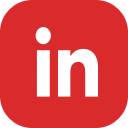5 Things I Wish Someone Told Me Before I Started My Nonprofit: With Daniel Rabuzzi, Executive Director at Mouse, Thrive Global
By Yitzi Weiner
View post on Thrive Global
I had the privilege of interviewing Daniel Rabuzzi, Executive Director at Mouse, a NYC-based national nonprofit, empowers students to use technology as a force for good.
Thank you so much for doing this with us! What is your backstory?
My Italian-American grandmother was the first born in the U.S.A., and my father was the first in our family to graduate from high school (let alone go to college). I will never forget my “nonni” recounting with pointedly self-aware irony how “stupid we were” in school, because at that time—in the 1920s and 1930s—no allowance was made for learners such as my grandmother, who spoke as much Italian as they did English. Many other groups in this country, of course, have suffered far worse for far longer, but listening to my grandmother has spurred my reflection and action ever since. And as a school-boy, I witnessed similar external challenges and biases—not directed at me, but placed in the way, or otherwise obstructing the rightful progress of equally (or more) talented classmates. In a nutshell: the opportunity divide, the lack of equitable access, is not abstract for me. I know how real, painful and pernicious it is, hence my desire to be part of eliminating it.
Can you tell me about the most interesting projects you are working on now?
Mouse plans to merge (subject to regulatory approval) with our long-time friends and peers at Code/Interactive. By bringing together learning content and educator training, Mouse and Code/Interactive will open opportunities for all youth to engage with creative technology and computer science to make meaningful change in our world. While each organization is independently strong, together they will meet the full range of creative computing needs, expanding our reach and realizing the potential of many more young people — especially those in underserved communities across the country.
We are also piloting content for early elementary grade learners, and are (with National Science Foundation support) piloting the replication of our advanced, intensive year-long human-centered design program, Mouse Design League.
So tell me a bit more about your organization?
Mouse works at the intersection of hands-on learning, access to and mastery of new technologies, and civil rights. Hence our tagline: “technology with purpose.” Focusing primarily on communities with the least resources, we work with educators in schools, libraries, and youth development organizations, with hubs in greater NYC, Minnesota, California and now (with Code/Interactive joining us) Texas. We offer twelve courses via our web-based Mouse Create Platform, including circuitry and electronics, coding, design with purpose, serious games, sewable tech, green tech, IT essentials, web literacy, and more. We provide training and support for the educators who use Mouse content with the learners. We are especially proud that nearly 40 percent of our participants are girls and young women, but we are driving for 50 percent by 2020.
Can you tell me a story about a person that you helped?
The young people and educators whom Mouse serves help themselves — our task is to provide tools, guidance, and encouragement so they can best do so. They also become deeply passionate about helping others.
Zainab immigrated from Nigeria when she was 12, and became involved in the Mouse program in her high school. Through Mouse, she developed her skills and confidence, and learned how to design technologies to positively impact the lives of others.
Zainab will graduate from the University of Virginia this spring, and plans to pursue International Law and be an advocate for individuals in developing countries. In her words, “Through Mouse, I learned about technology, but also so much more about being a great person. Mouse taught me to think outside of myself and how I could make life better for other people.” See more about Zainab here.
This obviously is not easy work. What drives you?
With a nod to my grandmother’s comments, I am driven by the desire to ensure that all Americans have equal opportunity to participate with fair field, and no favor in pursuit of prosperity and full political agency. This is not merely a private agenda. The American dream depends on closing the opportunity divide, bringing all talents to bear on our shared problems, and jump-starting our traditional genius for innovation.
None of us are able to achieve success without some help along the way. Is there a particular person who you are grateful towards who helped get you to where you are?
I owe many people for my success. If pressed to single out just one, I name Lisette Nieves. Lisette, as founding Executive Director for Year Up NYC, hired me to be her Chief Operating Officer. More than that, Lisette was and remains a very important mentor for me. Lisette exemplifies what leadership is: passion and vision united with can-do spirit to inspire a team to improve the lives of others.
What are your “5 things I wish someone told me when I first started” and why.
- Let your clients tell you what problem they want to solve, and how they see you helping them solve it. Too often we — effervescent with ideas that aren’t relevant to the end-user — miss the forest for our own trees.
- As a corollary, spend as much time as possible with your clients, to understand their lived reality and to avoid imposing your preconceptions on them. Visit their neighborhoods (if you do not already live in one), at various times of day. Buy lunch locally, sit on a park-bench, listen to snatches of conversation, feel the deeper cadence of that specific place. When I visit schools or offices, I “read the walls,” i.e., study what flyers and posters are up, and then chat with my hosts about what the walls suggest to me about local pride and local concerns.
- Balancing daily detail with long-term strategic goals is really hard. It’s like wearing a pair of glasses with one binocular lens and one microscope lens. Be sure to surround yourself with strong teammates, folks smarter than you about the practical elements of the work — and be humble enough to delegate. Did I mention that you need to delegate?
- Humility should guide just about everything you do. Pride may not always go before a fall, but it certainly makes us cling much longer than we should to failed ideas (the “sunk-cost dilemma,” knowing when to cut bait) and persist in making something when we should have bought it in more efficiently (the “make-or-buy” dilemma).
- Peter Drucker famously called “management a liberal art.” Take time every day to immerse yourself in your organization’s mission, to think on the ethics and metaphysics of your decision-making. Storytelling is paramount if you wish to inspire people (which includes telling a compelling tale with data, but the narrative is the thing whatever vocabulary you use). Ponder how you and your teammates can improve the aesthetics of your offerings — as Theaster Gates says, beauty should be a public good. This last element is often a leading indicator of where we are in closing the opportunity divide — those who are being shut out are told beauty is a nice-to-have that they cannot afford.
Some of the biggest names in Business, VC funding, Sports, and Entertainment read this column. Is there a person in the world whom you would love to have a private breakfast or lunch with, and why?
Kesha Cash, Founder & General Partner of Impact America Fund, because her vision inspires me and her strategy (using socially responsible for-profit vehicles) to realize her vision is powerful. The young people I work with will be the entrepreneurs Ms. Cash will fund — boosting the economy for us all.








